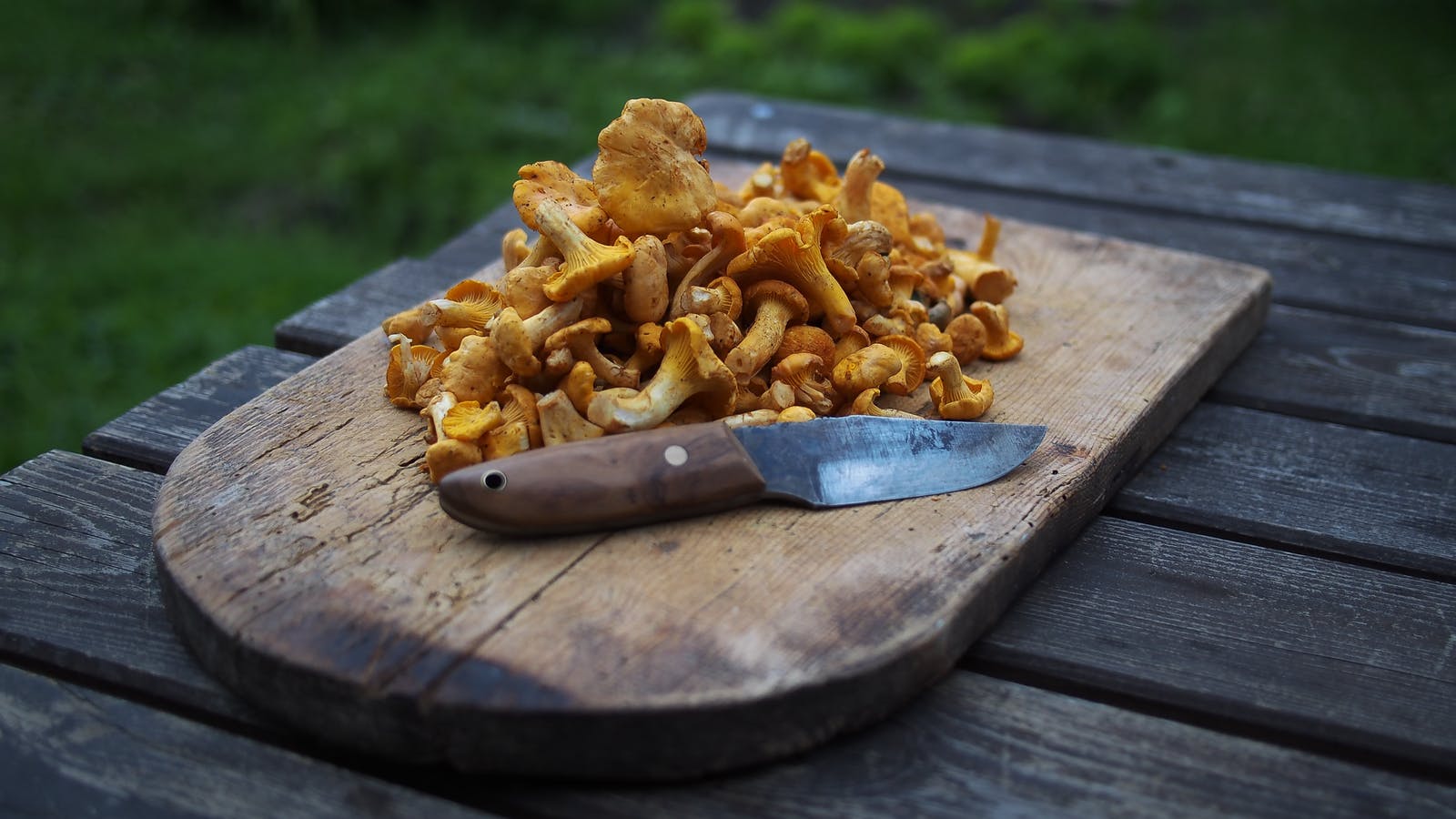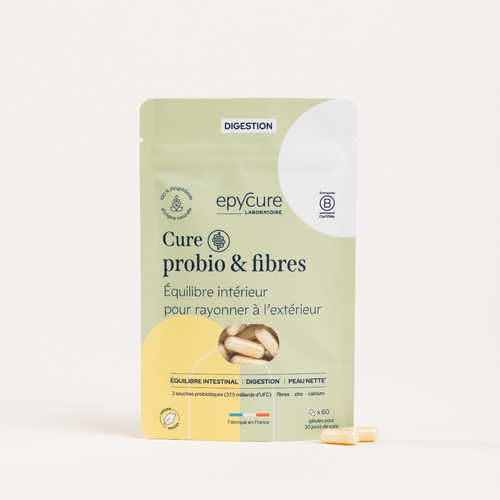What are prebiotics?
Before listing the prebiotics that are good for our microbiota, it seems essential to enlighten you on this term, which is often poorly known or even confused with probiotics. Prebiotics are the food for our body's beneficial bacteria, called probiotics, which inhabit our digestive system.
As a reminder, a probiotic is a living micro-organism (bacteria, yeast, fungus, etc.) which, ingested in adequate quantities, will benefit the functioning of our body. Natural probiotics are found in fermented foods such as yogurt, kefir, sauerkraut, etc. They can also be consumed in the form of dietary supplements.
Prebiotics are essential for these bacteria to promote their development and thus increase their effectiveness. They will increase the number of beneficial microorganisms and reduce the number of potentially harmful ones. Their consumption thus contributes to the balance of our intestinal flora and therefore to our health. Prebiotics are particularly present in foods rich in fiber.
Their role
The effect of prebiotic foods is provided by their fiber content. Indeed, fiber cannot be digested by our body alone. It is for this reason that they have the capacity to progress intact within the esophagus and the stomach by resisting the digestive enzymes and gastric juices secreted during digestion. Once in the intestine, they will come into contact with bacteria, which become more and more numerous as they progress towards the colon. These bacteria are able to digest dietary fiber and break it down into compounds with beneficial health effects. Indeed, when probiotics feed on prebiotics they will grow more quickly and in greater numbers, increasing their effects on health. They produce short-chain fatty acids (like acetic acid, propionic acid, and butyric acid) that help maintain a healthy intestinal barrier. Additionally, they regulate the absorption of nutrients through the colon, particularly the absorption of minerals like calcium, magnesium, copper, zinc and iron, and vitamins like vitamin B12. Finally, they help people prone to digestive disorders (difficult digestion, bloating, constipation), and help regulate immunity by strengthening our natural defenses.
Thus, the introduction of dietary fiber into the diet of young children would help to diversify their intestinal microbiota and reduce the prevalence of constipation and obesity.
Where are they found?
Fermentable fibers
Fibers are a component of plant cell walls. They are like a skeleton that helps them maintain their shape and structure. They are part of the carbohydrate family, but unlike sugars and starches, our body does not have the capacity to digest or absorb them: they pass through our digestive tract intact. But they are not useless, quite the contrary! Beyond their soluble (which increases satiety) or insoluble (which acts as an “intestinal broom”) character, it is above all the capacity of fiber to nourish, or be fermented, by our good intestinal bacteria which is crucial.
In practice ? You have a wide choice:
Vegetables: garlic, artichoke, asparagus, beets, broccoli, carrots, mushrooms, Brussels sprouts, squash, onions, parsnips, leeks, potatoes, Jerusalem artichokes
Fruits: apricot, unripe banana, plantain, cherry, lemon, kiwi, coconut, orange, watermelon, grapefruit, apple, grapes
Legumes: beans, lentils, chickpeas
Whole grains: oats, barley
Seeds and nuts: walnuts, pistachios, flax seeds and chia
Polyphenols
Polyphenols are food components that act as antioxidants but are very poorly absorbed in the small intestine. They therefore arrive in large quantities in the colon, where they interact with our microbiota: they nourish and promote the growth of beneficial bacteria, which in turn break down these polyphenols so that they are finally absorbed and can provide us with all their benefits.
In practice ? The best sources of polyphenols are spices, cocoa, red fruits and dried fruits.
Unsaturated fats
Omega-3 and omega-9 fatty acids are known for their anti-inflammatory properties and for their key role in the development of the nervous system. But what is less known is that they promote the bacterial diversity of our microbiota, which is associated with better health.
In practice ? Consume omega 9 daily in the form of olives, avocados, or their respective oils, and several times a week omega-3 in the form of fatty fish such as salmon, sardines, anchovies, mackerel or even herring. .
The benefits of prebiotics on our health and well-being are numerous and it therefore seems essential to consume them sufficiently. Therefore, to benefit from their positive effects, the recommended daily intake is 25 g per day for adults. You can easily achieve this dose of prebiotics by adopting a varied, balanced diet, rich in fruits, vegetables, cereals and legumes.
Some people want to turn to supplements combining prebiotics and probiotics, called synbiotics, in order to take care of their intestinal flora. There are many different probiotic strains, each working on a specific problem. To choose the strain that meets your needs, you can seek the advice of your doctor.



